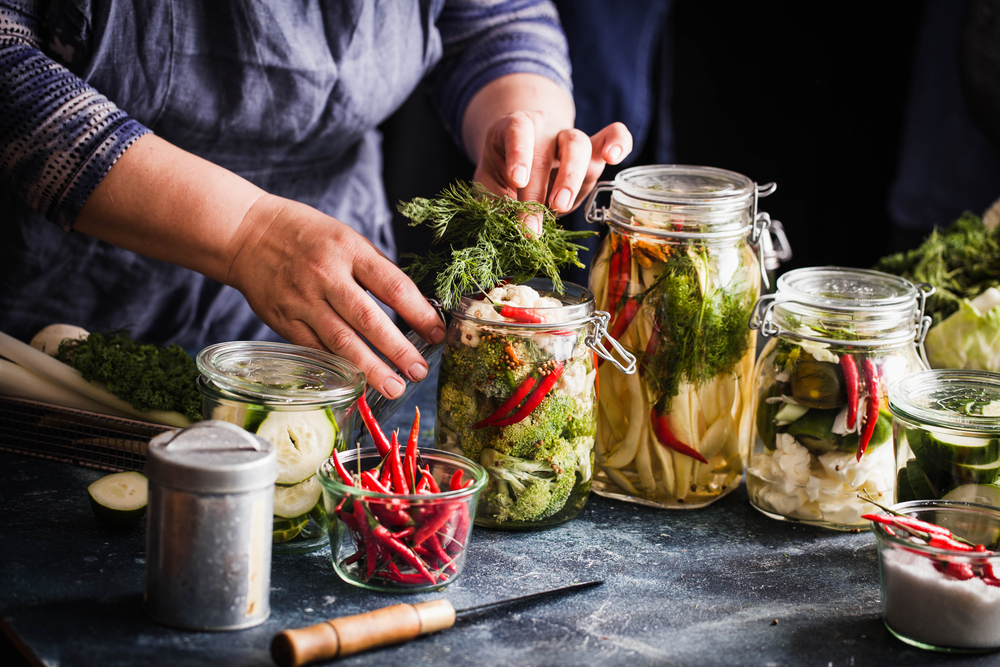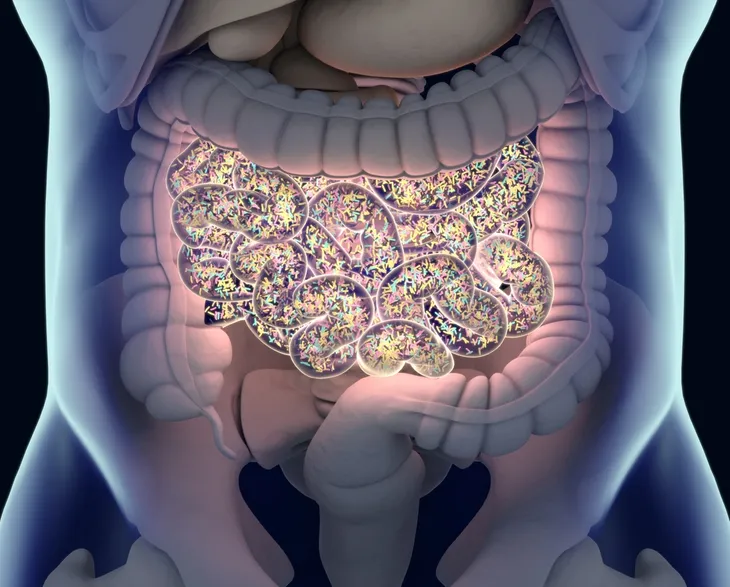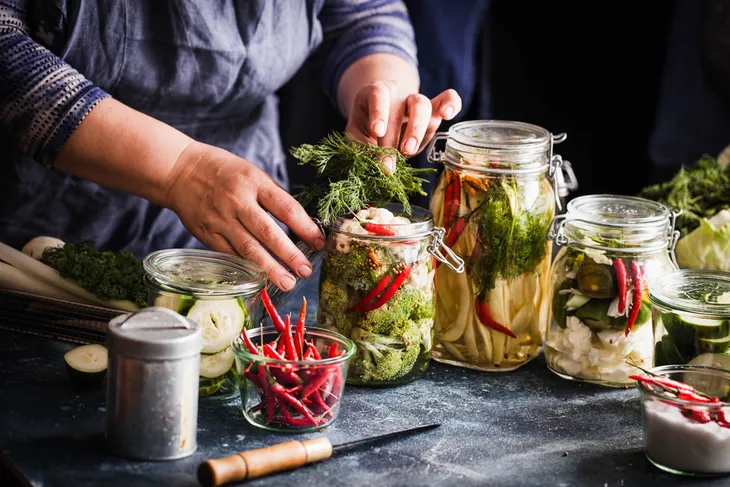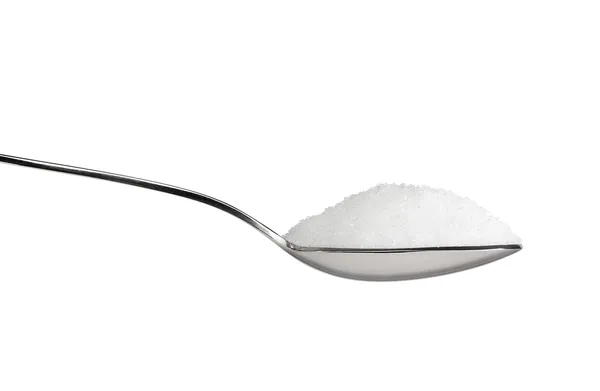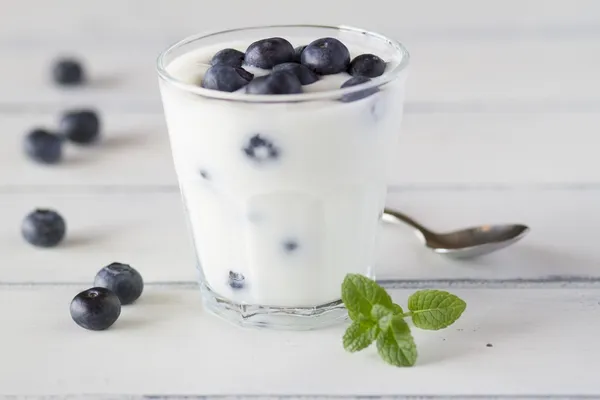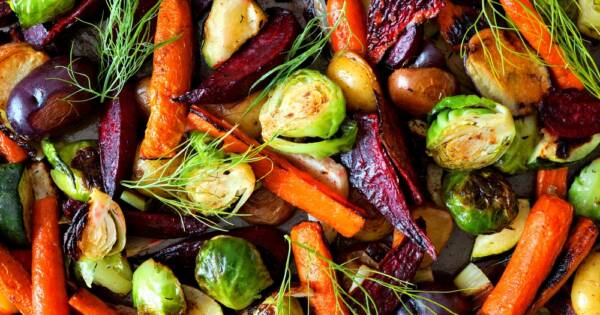Fermenting is basically a more palatable way to say rotting, but in the case of many foods, this is a good thing because the end result tastes good. Let’s be clear here – eating rotten food is a problem, but some of your (likely) favorite things are fermented on purpose – including beer and cheese.
It turns out that on top of being delicious, fermented foods can also bring health benefits. Who knew (except for a bunch of dietitians and nutrition experts)? So here are 10 reasons the fermented shouldn’t be lamented…
Better Absorption
According to WellnessMama.com, fermented foods help promote the proper balance of gut bacteria and the right levels of digestive enzymes to allow your body to absorb more of the nutrients you take in. “Pair this with your healthy real food diet, and you will absorb many more nutrients from the foods you eat,” it notes.
The source says because you’ll be getting more from the foods you already eat, you likely won’t need as many vitamins and other supplements because you’ll get them from where nature intended – your diet.
Be Pro Probiotics
Going back to gut health again, EatingWell lists seven foods containing probiotics – which it describes as “good bacteria.” These probiotics can help improve digestion, boost immunity, and some early research suggests they can also help you be leaner, notes the source.
It points you to try seven fermented favorites in particular, including tempeh (with naturally fermented soybeans), miso (a fermented paste from barley, rice or soybeans), sauerkraut (fermented cabbage), yogurt, kefir (fermented milk), kombucha, and kimchi (a spicier fermented cabbage).
Preserve Your Food Longer
Our society hasn’t always had fridges and fancy preservatives – in fact, those are fairly new in the grand scheme of human history. So fermentation was a way to make sure foods didn’t spoil so they could be stored longer, notes Choice.com.
“In the days before refrigeration, industrial food processing and global transport, this was – and still is in many cultures – an important means of extending the shelf life of foods,” it explains. Pickled vegetables, cheese, salami and wine are all examples of foods that can stick around longer because of lactic acid fermentation, it adds.
Preserve Your Immunity Longer
The Irish Institute of Nutrition and Health (IINH) explains that fermented foods could help you from getting sick by giving your immune system a boost. It explains that 70-percent of your immune system resides in your gut, and the digestive tract is where the body assimilates some of the digested products into your cells.
Because of this, it’s important to have a healthy gut to keep any harmful invaders from reaching your cells. “Eating fermented foods helps to provide some more ‘good guys’ to join the immune army,” it adds, noting this can help prevent inflammation in the body and can even lessen allergies.
Feel Good Factor
Drinking some fermented beverages (like beer) can help you feel a little lighter, but that’s not where we’re going with this. University Health News says many fermented products can improve your mood, and it’s not because of alcohol.
The source says probiotics can do more than up your digestive health – apparently they can improve your mental health. The microbiome (the bacterial composition of your gut) can literally affect your state of mind, it says, adding that animal studies have shown probiotic supplements can relieve symptoms of depression and anxiety. There’s some evidence this is true in humans, too.
Sweet Results Without the Sugar
BodyEcology.com says sugar cravings are likely a result of the imbalance of your inner ecology – the bacteria, yeasts, and cells that line the intestinal walls, explains the source. “When the inner ecology of your gut is in a state of balance, good bacteria and beneficial yeast thrive,” it notes.
However, if your inner ecology is out of whack, then Candida yeast (bad) can overtake your appetite, and lead to sugar cravings. Candida thrives off of sugar, so every time you reach for a candy bar or other type of sweet, you “literally feed the Candida yeast and other harmful microorganisms living in the gastrointestinal tract,” it warns. This creates a cycle of wanting more sugar, which can be harmful to your digestive and immune systems.
Relieving Your IBS
If you suffer from the unpleasant effect of irritable bowel syndrome (IBS), then you may be able to provide yourself some relief by eating fermented foods, suggests WebMD.
It notes that at least 1-study has found that fermented milk eases symptoms of IBS, “possibly due to beneficial changes in gut bacteria that such foods bring.” These foods apparently can also help relieve the diarrhea associated with taking antibiotics, adds the source.
Diverting Diabetes and Other Diseases
There may be other health problems you can avoid or alleviate with the addition of fermented foods, adds WebMD. It says “a recent review of studies on fermented foods” shows many reasons to add them to your diet, with lowered diabetes risk being 1-of them.
In particular, the source mentions yogurt for help in avoiding Type-2 diabetes, while kimchi (a spicy fermented cabbage) also apparently can help stave off diabetes as well. Yogurt has also been said to reduce heart disease risk, while kimchi can lower your chances of obesity, it adds. This is not to say fermented foods are a cure-all; talk to your doctor about your health risks and ways you can avoid problems down the road.
Be Wary at the Supermarket
While there are many fermented foods on the shelves of your local grocery store, you may not be getting the health benefits you’re expecting because of the process used to produce certain pickled vegetables, explains HealthyFocus.org.
For example, make sure the sauerkraut, kimchi and sill pickles you buy from a grocery store aren’t pasteurized, as this will destroy the beneficial bacteria they contain, it says. Make sure pickles are fermented, and not simply preserved in vinegar, it adds.
Which Fermented Foods are Tastiest?
Yes, you can follow a fermented food diet without sacrificing the flavor you get from some of your other (questionably healthy) foods, at least according to Prevention. The source has a list of 11-“surprisingly” tasty fermented foods (hint: they’re not beer or wine).
Some of these we’ve mentioned already, but here we go anyway: Prevention says miso, fermented dairy (yogurt and kefir), cultured coconut milk yogurt, tempeh, kombucha, fermented vegetables (sauerkraut and kimchi), kvass (similar to kombucha), and even fermented condiments (such as probiotic ketchup and hot sauces) are all music to your taste buds.
